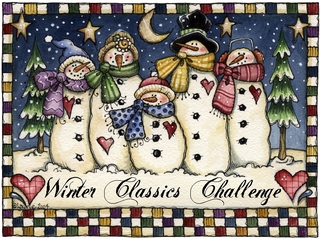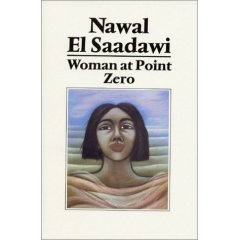I have been very lax about updating recently, which I am very ashamed about. I blame a new job, lots of job applications and lots of applications for work experience, which has been cutting into my reading time, but they don’t really constitute much of an excuse, do they? To make up for it, here is a post which I hope anyone who still reads this will find interesting (although you’ve probably all given up on me in disgust!).
People always smile when I tell them that I want to live in my own castle, or, at the very least, have a huge house complete with (and this is the most important part) my own private library. I’m not sure why they seem to find it humorous; I am entirely serious on both counts and fully intend to do everything in my power to get my castle!
Anyway, as a consequence of being determined to eventually possess my own library, I spend a reasonable amount of time daydreaming about libraries and what my own ideal one would be like, and so on. Some parts of my dream library I take from libraries I’ve seen either in films or on television, or those I’ve actually visited. Other aspects are probably impossible to attain, even with the best will and all the money in the world, but I think they’re darned good ideas as far as libraries go, so I’m incorporating them into my dream library anyway. I’m going to make this post a two-parter. Today I’ll look at some of the best fictitious libraries I’ve encountered, and tomorrow I’ll discuss some of the real libraries I’ve been to or seen, and the aspects I’d include in my own ideal library.
Personally, libraries have a sort of aura of special-ness for me. When I’m surrounded by so many books and there’s an atmosphere of quiet but intense studying, I can virtually feel myself absorbing knowledge and learning and an urge to devour every book in sight overcomes me – even the books on obscure things that I’d never normally want to read, like quantum physics and equally dreadful things. It is very vexing when libraries fail to have books that I want to read however, which is why I think Terry Pratchett’s concept of L-space is such a good one. For those of you who don’t read Pratchett’s Discworld series, I shall explain. L-space means library space. On the Discworld, words have power, and where many books are grouped together in a relatively small space, the power accumulates and strange things happen to space as we know it. In the library of Unseen University (for trainee wizards), wild thesauri roam amongst the shelves in the deepest darkest corners of libraries; some books are so powerful they have to be kept in vats of ice to prevent spontaneous combustion; and some are so rare and obscure, they necessitate entire expeditions of students to pursue them through the library, with a reasonable chance that the students will not return. The power of books and words distorts space and time, but the Librarian has learnt to manipulate this to his advantage, and can use L-space to access any library, anywhere, any time. There is no book that cannot be found through L-space, and rumour has it, even books that have not yet been written and may never be written can be found if you look hard enough.
From the universal eternal library of the Discworld to the infinite universe that is Borges’ Library of Babel. Borges once wrote “I have always imagined that Paradise will be a kind of library.” For anyone that has read ‘The Library of Babel’ however, surely that library is Borges’ vision of hell. A universe comprised of a library that contains more books than can be read in any one man’s lifetime; a library that mostly contains books that are filled with meaningless jumbles of letters; a library which contains every possible book but in which it is virtually impossible to find any book, let alone the book, which details the how and why of the library, or even any book which contains something other than incomprehensible strings of letters.
In a book I once read, which I cannot recall the name of now, was a prediction of what may in the future be possible – what is almost possible now. Each child is issued with a primer when born. It is a real book; the pages turn, it has a beautifully bound cover, and contains…whatever you need it to contain. It is a computer in book format. If you could access the internet, and every book ever written was online, in any language you chose, your own personal library would be contained in that single book. While I find this concept intriguing, I don’t especially like the idea of a single book as a substitute for a library. Part of the joy of libraries for me is wandering amongst the shelves, touching books, looking at the covers of books and the illustrations they contain, reading blurbs, reading bits from several books at once.. A single book wouldn’t do it for me. It may contain everything but what good is that if you can’t see it all laid out before you?
Finally, The Shadow of the Wind by Spanish author Carlos Ruiz Zafon has the most fantastic book shop in it. Although it isn’t a library, it symblises everything that is wonderful about books and bookshops and libraries. Some of you have probably read it, but here is a brief extract so you can all imagine the book shop for yourselves: The Cemetery of Forgotten Books.
A blue-tinted gloom obscured the sinuous contours of a marble staircase and a gallery of frescoes peopled with angels and fabulous creatures. We followed out host through a palatial corridor and arrived at a sprawling round hall where a spiralling basilica of shadows was pierced by shafts of light from a glass dome high above us. A labyrinth of passageways and crammed bookshelves rose from base to pinnacle like a beehive, woven with tunnels, steps, platforms and bridges that presaged an immense library of seemingly impossible geometry…For almost half an hour I wandered within the winding labyrinth, breathing in the smell of old paper and dust. I let my hand brush across the avenue of exposed spines, musing over what my choice would be. I roamed through galleries filled with hundreds, thousands of volumes. After a while it occurred to me that between the covers of each of those books lay a boundless universe waiting to be discovered.




